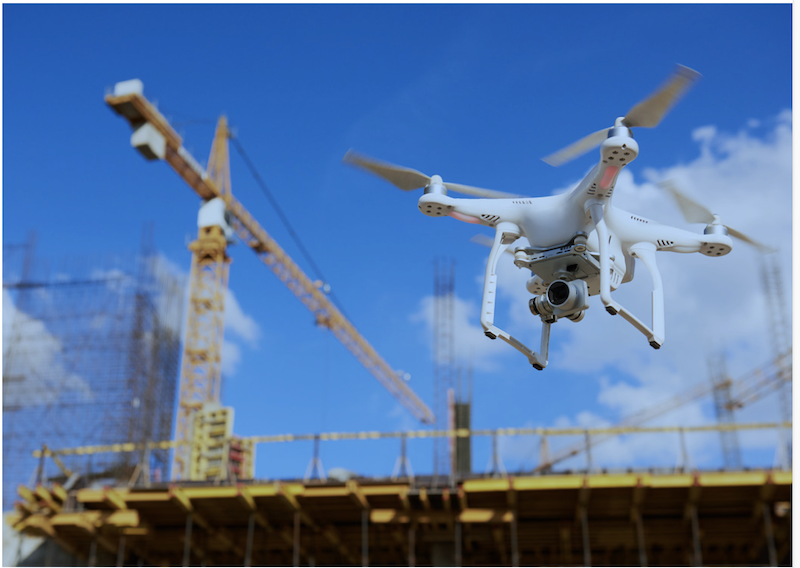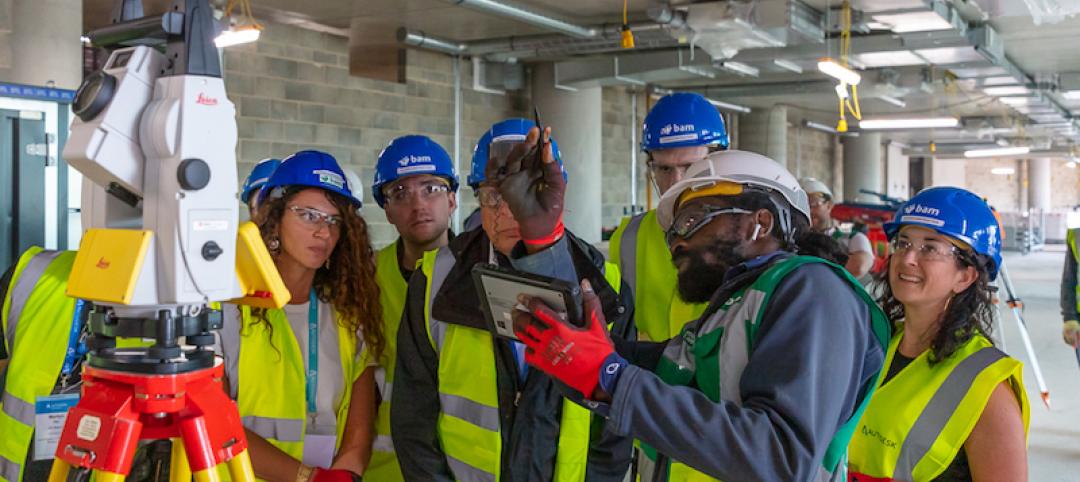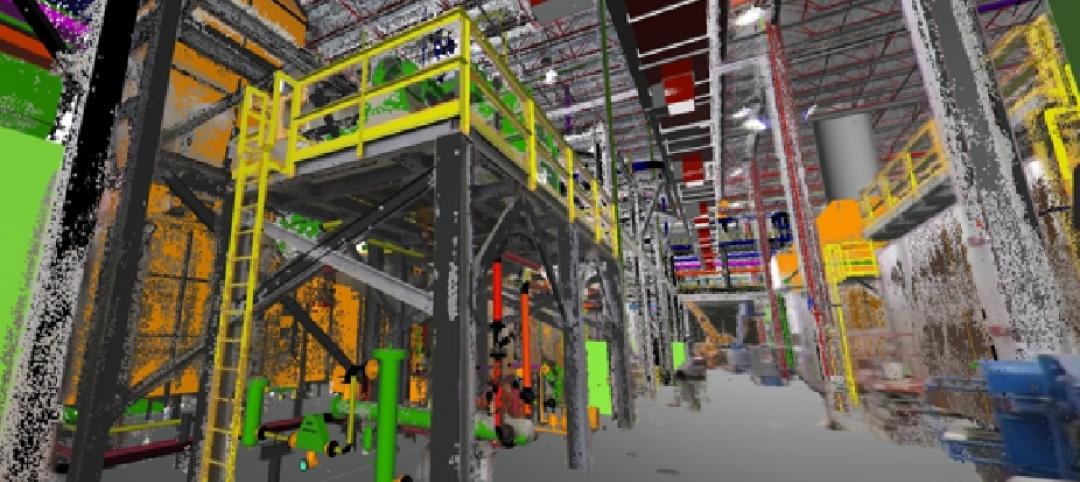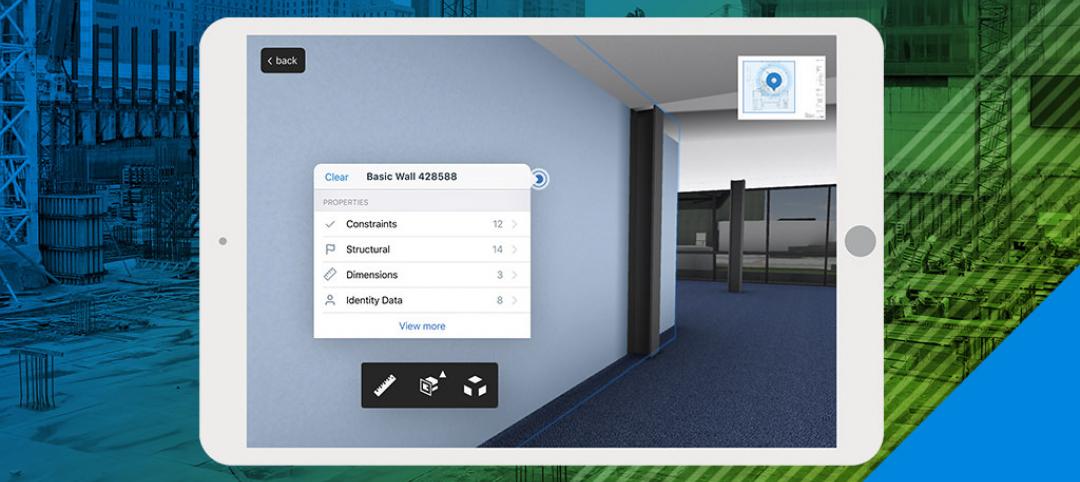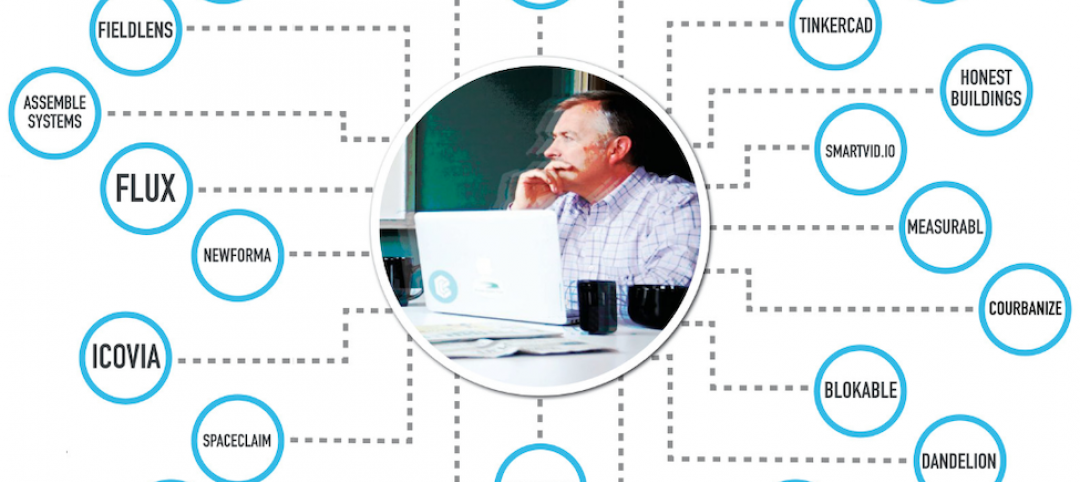Opportunities abound in 2020 for U.S. engineering and construction firms that can find ways to capitalize on trends and technologies that improve jobsite operations and keep costs under control.
That’s the assessment of a new report from Deloitte’s Research Center for Energy and Industrials, titled “2020 Engineering and Construction Industry Outlook.”
While EC firm revenues are steadily rising, their bottom lines remain under sustained cost pressures, ongoing labor shortages that affect productivity, and trends toward fixed-bid projects that demand a level of pricing and operations precision that is difficult to obtain with traditional systems.
A more fervent embrace of digital technologies could help to alleviate some of these issues. “E&C firms have opportunities to play central roles,” the report states. “Building a solid digital roadmap can help with operational challenges while also delivering competitive advantage for the early adopters.
The report identifies four exploitable areas that are likely to impact EC firms’ fortunes this year.
•Market disruptions:
The EC industry is historically a low-margin business, and several factors—Asian competition, project complexity, supply-chain constraints—are pressing U.S. companies’ profitability. “These constraints make it important for contractors to be proactive in managing processes and operations that contribute to margins and profitability, adding efficiencies and optimization where possible,” the report states. Partnerships that enable expansion and scale can help.
The report sees a potential boost to profitability in trends toward modularization and prefabrication that reduce labor costs, improve quality and safety, and shorten project schedules.
The same would be true of smarter project management that adopts emerging digital technologies, such as those that eliminate the need for manual data entry, and provide data required to access project status. “Digitally optimized operations can provide actionable data that can put projects back on track quickly. And, having state-of-the-art cost budgeting and scheduling tools and technologies is becoming a competitive advantage.”
•Digital:
Inherently disruptive technologies are providing the efficiency, productivity, and safety breakthroughs the industry has sought for decades. The report singles out robots, jobsite automation, and the rise of artificial intelligence that are making their mark on construction. “The connectedness that digital technologies enable can also enhance ecosystem relationships, as firms can more easily collaborate and work together on projects,” the report states.
Digital technologies are also forcing EC firms to rethink who does what and how and where it gets done. These technologies often require workers with new skill sets, and can be tricky in terms of managing humans, robots, and sensors within the same environment from such standpoints as work scope and privacy.
•Infrastructure projects:
If, in fact, the U.S. federal government makes good on its intention to spend $2 trillion on infrastructure improvements over the next decade, such investment would invariably drive revenue and job creation in the EC arena. Private funding is also expected to be needed. “2020 could bring an opportunity for U.S. firms to emulate their global counterparts who have been successful funding major infrastructure projects over a build-operate-transfer model,” the report predicts.
Additionally, agencies, with the help of contractors, will likely spend money on repair and maintenance instead of upgrades and replacements. EC companies that are positioned for infrastructure projects can focus on choosing the right partnership model for delivery and funding. They can also take a life-cycle approach to project delivery.
•Smart cities:
Sixty-eight percent of the world’s population will live in urban areas by 2050, compared to 55% today. To manage this migration, urban planners are seeking smart solutions that, according to the Deloitte report, have focused on environmental sustainability and digital enablement to improve the quality of urban life.
Smart technologies are providing some solutions. For example, “the rise of intelligent buildings that can self-optimize their operations and all-encompassing building management systems to better serve their inhabitants over time is a rising trend powered by AI,” the report observes.
Data produced from digitally enabled assets could be used to assess trends and inform future building designs. Technology is already impacting water and energy consumption, and is being used to optimize traffic in all aspects of city living, from public transportation to the utility of parks and other public spaces.
EC firms will need to bring digital skills to the smart-city planning table, which they must either cultivate internally or add through partnerships or acquisitions. That means investing in those technologies that are most strategic in demonstrating proficiencies related to smart cities.
Related Stories
AEC Tech | Jun 28, 2019
In London, Autodesk homes in on construction management
The software goliath sounds the alarm about the urgent need for productivity improvements to address unbridled urbanization.
Giants 400 | Jun 26, 2019
How are the AEC Giants faring in the tech arms race?
About half (42%) say their firm is “on par” with their most-direct AEC competitors.
AEC Tech | Jun 10, 2019
Mortenson joins forces with robotics technology producer
The partners will focus on equipment used for earthmoving in wind and solar projects.
AEC Tech | May 15, 2019
AI and digital twin firm Reconstruct Inc. closing $7.7 million Series A investment
Reconstruct’s AI and digital twin capabilities provide indoor/outdoor views for project stakeholders to track and resolve project issues in a virtual environment before they impact cost and schedule.
AEC Tech | May 7, 2019
Can machines design?
Instead of debating about whether machines can design, why don’t we ask, What if they could? How might architecture change if computers take over the process entirely?
Codes and Standards | Apr 25, 2019
Report: Contractors invest $1.6 billion in workforce development annually
ABC members increased training spending 45% from 2013, according to a new report.
AEC Tech | Apr 24, 2019
PlanGrid Delivers BIM Data in 2D and 3D Directly to Mobile Users in the Field
One of the construction industry’s most widely-used mobile technologies makes critical data accessible in the field with first major Autodesk integration after acquisition.
Digital Twin | Apr 24, 2019
Can Digital Twin make project management more efficient?
One leading owner’s rep is pushing that idea with its “OneModel” BIM-sharing approach.
Movers+Shapers | Apr 19, 2019
AEC angel investor
Jesse Devitte is among the prescient venture capitalists who’ve bet on the AEC industry finally coming around to design and construction technology.
AEC Tech | Apr 17, 2019
4 fundamental relationships between buildings and machines
If and when AI drives the entire process of design, construction, and operation, buildings could become exponentially smarter with resources, money, time, and performance.


